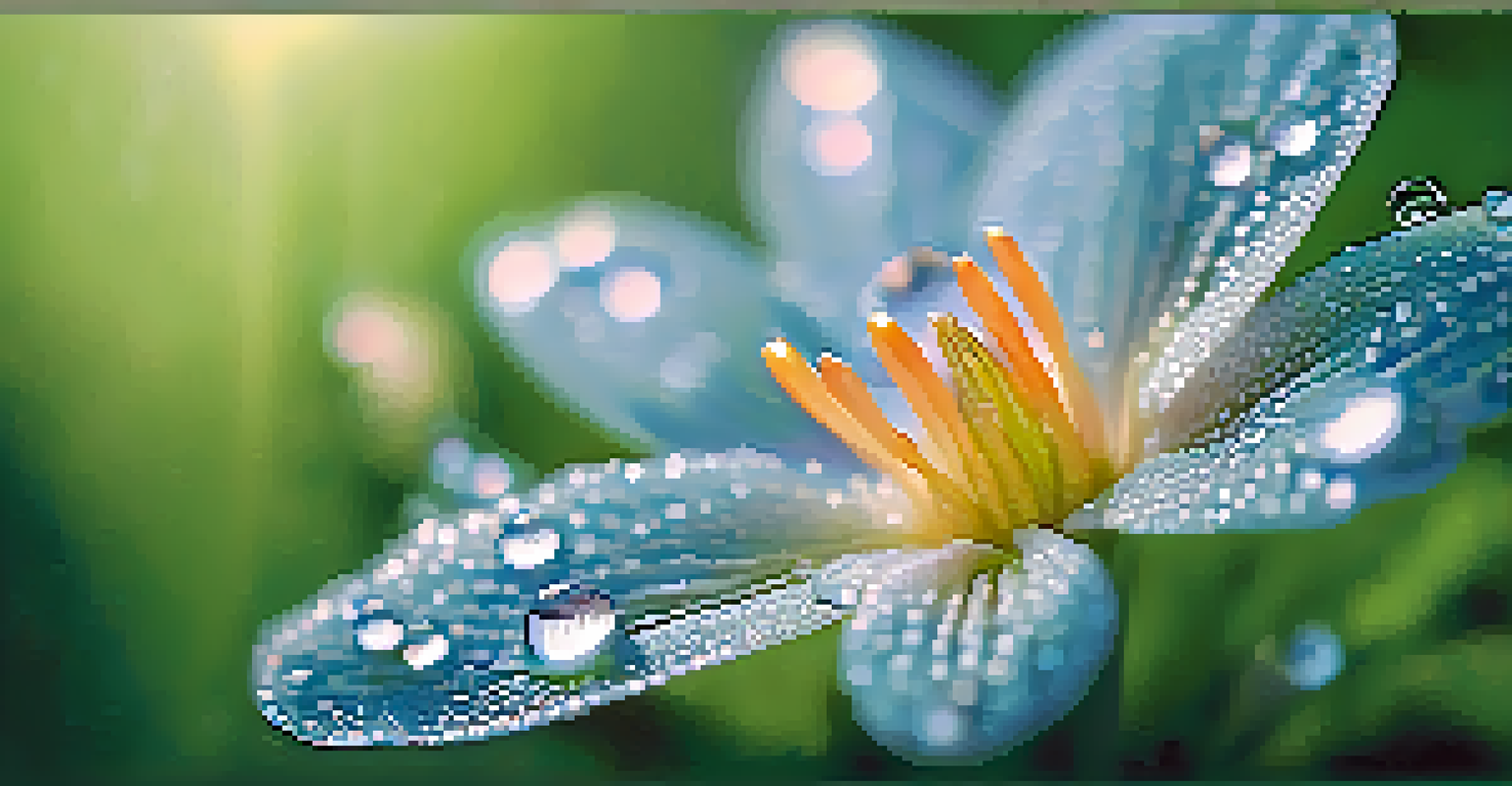Psychedelics in Palliative Care: Enhancing End-of-Life Quality

Understanding Psychedelics and Their Effects
Psychedelics are substances that alter perception, mood, and cognition. Common examples include psilocybin, found in magic mushrooms, and LSD. These compounds have been researched for their therapeutic potential, particularly in mental health settings.
Psychedelics can help patients confront their fears and find meaning in their remaining time.
In recent years, there has been a resurgence of interest in how psychedelics can enhance the quality of life for terminally ill patients. Unlike traditional medications, which often focus on physical symptoms, psychedelics can address emotional and existential distress.
This approach may offer patients a chance to explore their thoughts and feelings about death, leading to a greater sense of peace and acceptance. By facilitating profound experiences, psychedelics can help individuals confront their fears and find meaning in their remaining time.
The Role of Psychedelics in Palliative Care
Palliative care aims to provide relief from the symptoms and stress of a serious illness. Psychedelics can play a unique role in this setting by addressing both psychological and emotional pain. They may help patients cope with anxiety, depression, and existential dread that often accompany terminal diagnoses.

Research shows that patients who have used psychedelics report significant reductions in anxiety and improved quality of life. These substances can promote feelings of connectedness and transcendence, which can be especially comforting at the end of life.
Psychedelics Alleviate End-of-Life Anxiety
Psychedelics can significantly reduce anxiety and existential dread in terminally ill patients, offering them a greater sense of peace.
By incorporating psychedelics into palliative care, healthcare providers can offer a more holistic approach that values the psychological well-being of patients alongside their physical comfort.
Scientific Research Supporting Psychedelic Use
Various studies have emerged that highlight the potential benefits of psychedelics in end-of-life care. For instance, a landmark study published in 2016 found that psilocybin significantly reduced anxiety and distress in cancer patients. Participants reported lasting improvements in their emotional state even months after the treatment.
The use of psychedelics in therapy can provide a path to healing that is profound and deeply personal.
Further research is ongoing, with clinical trials exploring the effects of psychedelics on different symptoms related to terminal illnesses. These studies aim to provide robust data on dosage, effectiveness, and safety, helping to integrate these substances into standard care practices.
The growing body of evidence suggests that psychedelics could play a transformative role in palliative care, offering hope to those facing the end of life.
Patient Experiences: A Transformative Journey
Many patients who have experienced psychedelic therapy describe it as a profound journey. They often report feelings of unity with the universe and a deep sense of love, which can alleviate fears surrounding death. These transformative experiences can shift perspectives, allowing patients to approach their situation with renewed acceptance.
Anecdotes from patients reveal that psychedelics can enable conversations about death that are often difficult to navigate. By fostering openness, these substances can create an environment where patients feel safe expressing their fears and desires.
Transformative Patient Experiences
Patients often describe psychedelic therapy as a profound journey that fosters acceptance and facilitates difficult conversations about death.
Ultimately, these experiences can lead to a sense of closure and peace, allowing patients to leave this world with dignity and love.
Cultural Perspectives on Psychedelics
Psychedelics have been utilized in various cultures for centuries, often in spiritual or healing contexts. Indigenous practices in South America, for example, have long incorporated plant-based psychedelics, such as ayahuasca, as tools for healing and personal growth.
These cultural frameworks provide valuable insights into how psychedelics can be integrated into modern healthcare. They emphasize the importance of community, ritual, and support in the therapeutic process, which can enhance the overall experience for patients.
By acknowledging and respecting these cultural traditions, healthcare providers can create more inclusive and effective palliative care programs that honor the diverse backgrounds of patients.
Challenges and Ethical Considerations
While the potential benefits of psychedelics in palliative care are promising, several challenges remain. Regulatory hurdles, for instance, pose significant barriers to research and clinical implementation. Many psychedelics are still classified as Schedule I substances, making it difficult to obtain them for medical use.
Ethical considerations also arise, particularly around informed consent and the potential for misuse. It's crucial that patients are fully educated about the risks and benefits of using psychedelics to ensure they make informed choices about their treatment.
Cultural Insights Enhance Care
Incorporating cultural perspectives on psychedelics can enrich palliative care, emphasizing community and supportive rituals for healing.
Navigating these challenges will require collaboration between researchers, healthcare providers, and policymakers to create a safe and effective framework for the use of psychedelics in palliative care.
The Future of Psychedelics in Palliative Care
As the stigma surrounding psychedelics continues to diminish, the future looks bright for their integration into palliative care. Ongoing research is paving the way for a new understanding of how these substances can improve end-of-life experiences.
Advancements in clinical trials and a growing body of evidence will likely lead to more widespread acceptance and use. This could ultimately transform the landscape of palliative care, offering patients new avenues for relief and understanding.

In summary, the potential of psychedelics to enhance end-of-life quality presents an exciting opportunity for both patients and healthcare providers, promising a more compassionate approach to terminal illness.